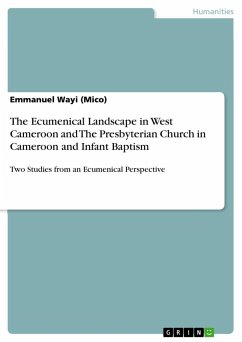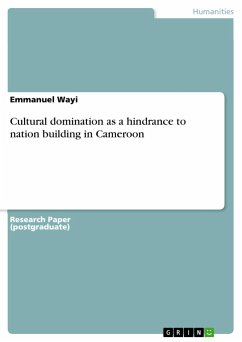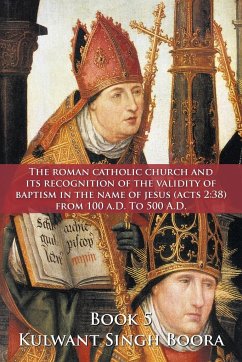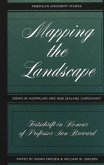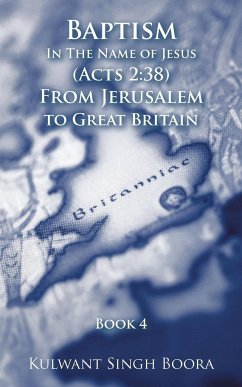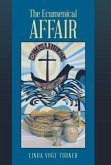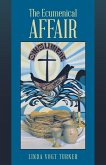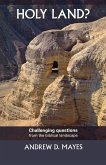Document from the year 2017 in the subject Theology - Miscellaneous, grade: 1, , course: Inter-Confessional Dialogue, language: English, abstract: What has motivated the first part of this paper is the genuine search for a Christian identity within the context of West Cameroon. Cameroon is a multicultural country which has been grouped into two major linguistic areas. French speaking Cameroon constitutes more than 70% of the country while the English speaking part makes up more than 25%. Most often, the story of Cameroon is written in a block and as if it were a complete unit without minding the fact that the two linguistic parts are made up of two different people who have completely different cultures and styles of governance as well as Christian experiences. This began in colonial days, when missionary activities followed colonial principles.Thus to concretely explore the subject of ecumenism in Cameroon, the two units must be studied separately in order to get the true ecumenical story of the country. In this paper, focus will be laid on West Cameroon where ecumenism seems to have been swallowed up under a structure of ecumenism known as CEPCA which operates more than 90% in the French speaking area and by French principles. By exploring this option, this paper seeks to make a clear difference between the experiences of the two territories.The motivation for the second paper on infant water baptism from the perspective of the Presbyterian Church in Cameroon (PCC) is guided by the ecumenical reality of the context of Cameroon and particularly the Western part of Cameroon considered as the English speaking section of the country. The reality shows that there are many arguments and divisions over the issue of water baptism among the churches operating in this area of the country, with each confession trying to criticize the position of the other in the way they do baptism. These criticisms are often time void of a positional defense on why each does their water baptism the way they do.The PCC in particular and the other traditional churches in West Cameroon have suffered from the hands of the Pentecostals or new churches over the issue of infant baptism. These are not able to clearly stipulate why they think infant baptism is bad but have simply thrown it away in favor of adult water baptism. Upon this background, this paper is meant to attempt an explanation of the PCC's position on baptizing infant with water and why they think it's a very important rite that must not be neglected within the ministry of the church.
Hinweis: Dieser Artikel kann nur an eine deutsche Lieferadresse ausgeliefert werden.
Hinweis: Dieser Artikel kann nur an eine deutsche Lieferadresse ausgeliefert werden.

